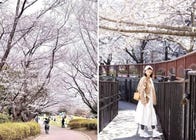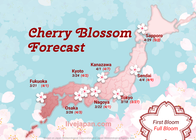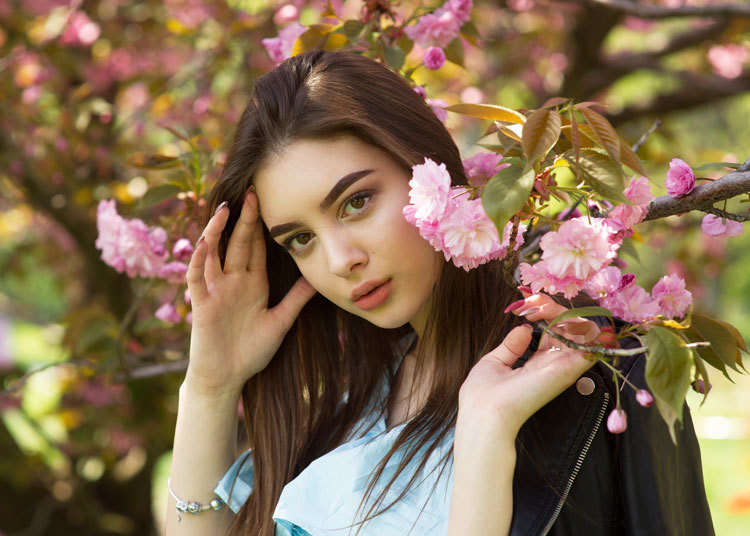
'I Love Spring in Japan': Surprising Reasons Foreigners Choose to Visit Japan in Spring
- Written by: Yuu Sato
In Japan, a country blessed with four distinct seasons, each season brings its own unique charm. Among these, spring stands out as a favorite for both locals and visitors alike, thanks to its gentle weather and the breathtaking views of cherry blossoms.
This time, we've decided to get up close and personal with the allure of spring in Japan by interviewing foreigners who have plenty of experience traveling in Japan. They've shared their insights with us, saying, "If you're going to visit Japan, make it in the spring!" (Please note that the following comments are the personal opinions of the respondents).
Spring in Japan is Comfortable!

"I absolutely love spring in Japan! In Finland, we don't have cherry blossoms like Japan does. Seeing the cherry blossoms in Japan was like something out of a dream," said a Finnish woman.
"I thought it would be warm and wore light clothes, but the mornings and evenings were a bit chilly. I should have brought something to wear over my clothes," mentioned a German woman.
"I think spring in Japan is comfortable. But the pollen is tough. It's a kind of discomfort we don't have in my home country," shared an Italian woman.
The average high temperature in spring in Japan ranges from 14°C to 25°C (about 57°F to 77°F), making for a pleasant climate. However, the chill of winter can linger into March, with particularly cold mornings and nights, so wearing a coat or jacket when going out is advisable. By May, temperatures rise significantly compared to March, making heavy clothing unnecessary. A light layer over a shirt should suffice.
As the Italian woman we interviewed mentioned, among the foreigners who visit Japan, there's an opinion that "spring in Japan has a mild climate that's easy to enjoy, but the pollen allergies can be severe." Pollen allergies aren't unique to Japan and can be found abroad as well. However, some visitors experience their first onset of hay fever upon coming to Japan, leading to significant discomfort from unexpected itchy eyes and runny noses. Even those who haven't developed symptoms talk about taking daily yogurt as a preventative measure.
Cherry Blossoms and Flower Viewing
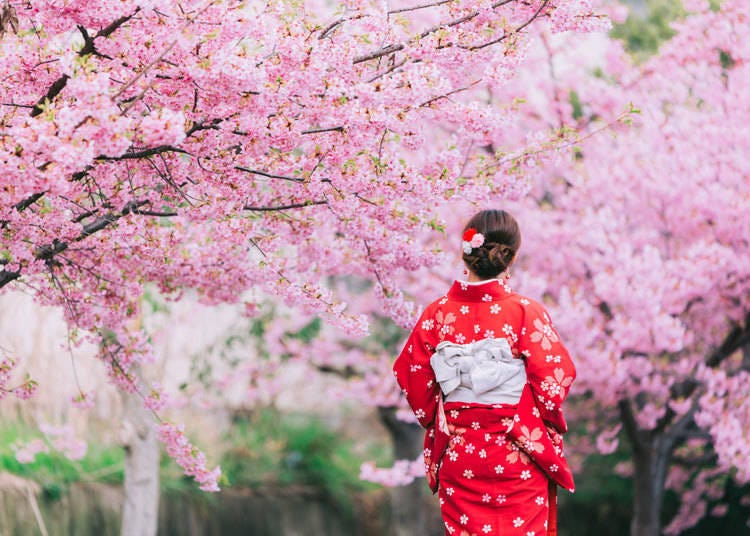
"I actually prefer the plum blossoms that bloom before the cherry blossoms. I think there's no flower more beautiful," said a woman from Finland.
"The cherry blossoms in Ueno Park... The sight of leisure sheets spread out and many people picnicking under the cherry trees was overwhelming. Some were drinking and seemed to be having a great time. When I went to a convenience store, I noticed that all the snack packages were adorned with cherry blossom designs. It's clear that Japanese people really love their cherry blossoms," a German woman commented.
"I definitely think spring in Japan is beautiful. We don't have many cherry blossoms in Australia, but we do have a lot of beautiful flowers blooming, which is also nice," shared a woman from Australia.
"Italians dream about going to see the cherry blossoms. I knew about Japan's Children's Day on May 5th and the Doll's Festival on March 3rd even in Italy. Japanese manga is popular internationally, so if you like manga, you generally know about these things," an Italian woman mentioned.
Cherry blossoms are perhaps the first thing that comes to mind when thinking of Japan's springtime splendor. During this season, cherry blossom festivals and viewing parties are held nationwide, drawing large crowds. Foreign visitors often talk about the Japanese tradition of flower viewing. It seems there's a strong interest among Japanese people to drink and enjoy the cherry blossoms with friends and coworkers at popular spots like Ueno Park and Yoyogi Park.
While cherry trees can also be found in countries like the United States, France, and Canada, allowing foreigners to enjoy flower viewing in their home countries, the practice of drinking in public places like parks is prohibited in many countries abroad. This makes the Japanese style of flower viewing a unique experience that many foreigners wish to partake in at least once.
Seasonal Ingredients
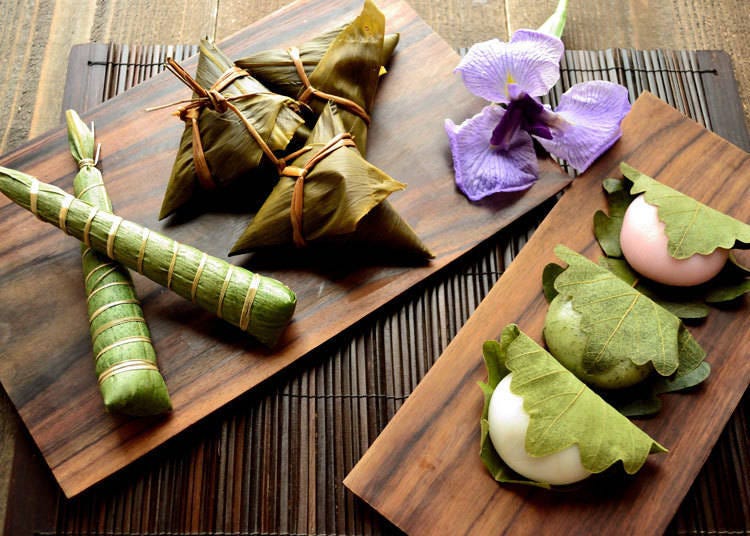
"I went strawberry picking in spring and ate my fill. Japanese strawberries are so sweet and delicious. The strawberries back home are a bit more tart," shared an American man.
"I loved the bamboo shoot dishes. The flavor was a bit mild, but I really liked the texture and aroma. I haven't tried it yet, but I've heard that bamboo shoot steak is very tasty. I definitely want to try it," a German woman said.
"When it comes to spring ingredients, I like things with a bit of bitterness, like mustard greens and crown daisy. I also find it interesting that there are seasonal foods like wagashi (Japanese sweets) decorated with cherry blossom patterns and kashiwa mochi that are available only in spring," mentioned an Italian woman.
Japan's spring offers a bounty of ingredients like strawberries, spring cabbage, and bamboo shoots, alongside a wealth of seafood such as bonito and Spanish mackerel. Seasonal dishes are popular not just among Japanese but also with foreigners visiting Japan, with bamboo shoot cuisine standing out as a signature of the season.
The Italian woman we spoke to also praised the wagashi, such as kashiwa mochi and sakura mochi, for their reputation. These sweets are not only delicious but also offer a way to experience the seasons through taste. Interestingly, foreigners are often surprised to learn that the leaves wrapped around sakura mochi are meant to be eaten, not just for decoration.
Traditionally Japanese Events That Evoke "Japaneseness"
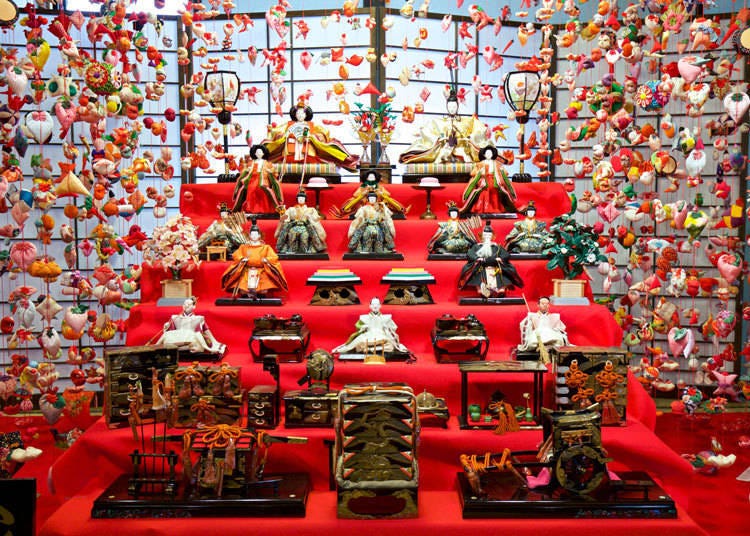
"I love Japanese tea and was impressed by the traditional attire worn by women on a tea-picking tour. I heard it's workwear suitable for tea picking, but it looked stunning against the green tea fields," said a German woman.
"Spring in Japan is wonderful. The view of Mount Fuji in spring is just so beautiful and clear. In Yamanashi, there's Jinrikisha Park where you can walk through a tunnel of cherry blossoms. It's beautiful and highly recommended," an Italian woman shared.
March 3rd is known for Hinamatsuri, a festival praying for the growth and happiness of girls. This event has a rich history, dating back to before the Heian period, and is believed to have originated from a Heian era ritual for warding off diseases. Girls of the upper class would entrust their troubles to dolls called "hina" and set them afloat on rivers or the sea. It's said that this is how the term "hina" came to be.
The concept of a day dedicated to girls, like Hinamatsuri, is quite unique globally and might seem a bit peculiar to foreigners. However, many express fascination with these mystical aspects of Japanese culture.
Conversely, Children's Day on May 5th, with its display of koi nobori (carp streamers), is a tradition praying for the growth of boys. The origin lies in a Chinese legend where a carp transforms into a dragon after climbing a waterfall, symbolizing the wish for boys to grow up successful and strong. Foreign visitors to Japan who have seen the majestic sight of koi nobori swimming in the sky often describe it as "a beautiful scene" and "the best view during my stay in Japan."
"I knew about Hinamatsuri and Children's Day's koi nobori from Japanese manga popular in Italy. Spring in Japan feels full of events that let you experience Japanese culture," said an Italian woman.
Wrapping Up
Understanding the appeal of Japan's spring through its climate, ingredients, and events, it's easy to see why foreigners are drawn to visit during this season time and again. However, as Japanese who are familiar with all four seasons, we know that each season has its own unique beauty. I hope that next time, visitors will also take the opportunity to enjoy the different charms that other seasons have to offer.

Writer
Dali Corporation
A writer who focuses on intricate genres including human resources, legal affairs, and careers. He mainly writes column articles.
- Area
*Prices and options mentioned are subject to change.
*Unless stated otherwise, all prices include tax.
Popular Tours & Activitiess
-

Enjoy Japan's Gorgeous Winter Lights! Ride the Romancecar to Shonan no Hoseki Illumination
by: Guest Contributor
-

Shopping, Dining & All-Day Fun! Your Complete LaLaport Guide + Exclusive Tourist Coupon
-

A Travel Game Changer! Go Hands-Free Between Tokyo and Kyoto with LUGGAGE EXPRESS by JTB and JR Tokai
by: Guest Contributor
-

Get Ready to Catch 'Em All! First Ever Permanent Outdoor Pokémon Park Opening Near Tokyo!
-

LaLaport TOKYO-BAY North Building Now Open: Shop, Dine & Enjoy Events at LaLa arena, Just 2 Stops from Disney
by: Wemmy Chau
-

2025 Japan Autumn Color Report: Northeastern Japan Nearing Peak
by: Timothy Sullivan
Inspiration for Accommodations
-

Enjoy Mt. Fuji from the Comfort of Your Room! Recommended Ryokan with Mt. Fuji View
-

Stay Near the Cherry Blossoms! Hotels for Cherry Blossom Viewing in Tokyo
-

Family-Friendly Hotels with Free Shuttle to Disneyland: Convenient Access for a Magical Stay
-

Top Ranked Hakone Hotels with Mt. Fuji View: Enjoy Stunning Scenery from Your Private Space
-

Convenient Tokyo Hotels with Airport Shuttle: Ideal for Families and Heavy Luggage
-

Stunning Tokyo Tower View Hotels: Enjoy Spectacular Scenery from Your Private Space
-

Convenient Asakusa Hotels with Kitchens: Ideal for Extended Family Visits
-

Experience Luxury: Hakone's 10 Best Five-Star Accommodations
-

Enjoy Mt. Fuji Autumn Leaves! Top Hotels Near the Popular Autumn Leaves Corridor
-

Experience Hakone Fall Foliage from Your Room with Stunning Views
-

Exploring Tokyo: 4 Must-Visit Spots around Tokyo Station
-

6 Fun Things to Do at Tokyo's World-Famous Tsukiji Outer Market!
-

Dive Into Tokyo's Nightlife: Ginza & Tsukiji After 9 p.m.
-

Guide to Tokyo's Old Quarter: 7 Quaint Spots in Yanesen!
-

Tokyo After Dark: 4 Popular Shibuya Spots for Dinner & Drinks
-

Top 3 Shibuya Wagyu Restaurants for Great Japanese Beef Under $15!
- #best ramen tokyo
- #what to buy in ameyoko
- #what to bring to japan
- #new years in tokyo
- #best izakaya shinjuku
- #things to do tokyo
- #japanese nail trends
- #what to do in odaiba
- #onsen tattoo friendly tokyo
- #daiso
- #best sushi ginza
- #japanese convenience store snacks
- #best yakiniku shibuya
- #japanese fashion culture
- #best japanese soft drinks













